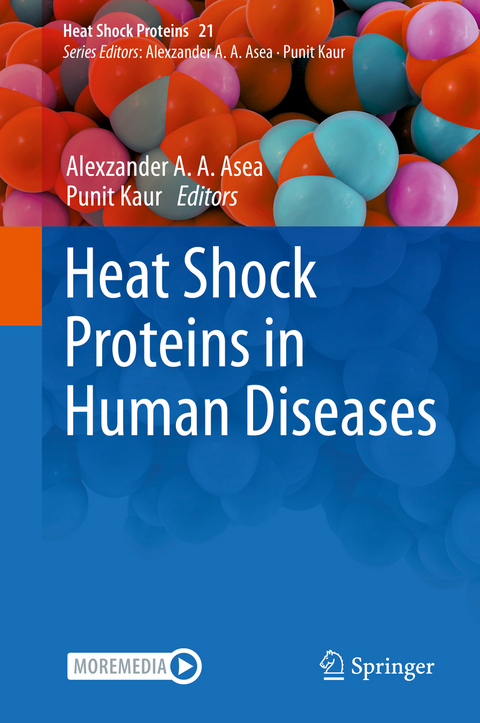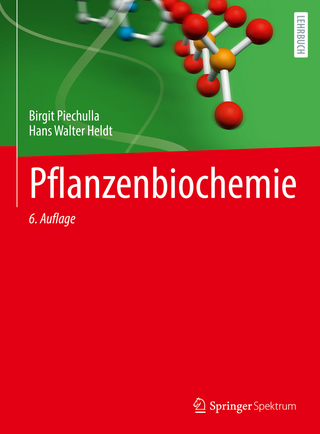
Heat Shock Proteins in Human Diseases
Springer International Publishing (Verlag)
978-3-030-62288-6 (ISBN)
The book Heat Shock Proteins in Cancer Therapeutics provides the most comprehensive review on contemporary knowledge on the role of HSP in various types of cancer therapeutics. Using an integrative approach, the contributors provide a synopsis of the most current updates on the state of HSP in cancer therapeutics.
The heat shock response pathway is a highly conserved cellular process. Heat shock factors are a master transcriptional regulator responsible for expression of several important heat shock proteins, which can effectively protect critical client proteins from misfolding and degradation, thus maintaining intracellular integrity under stressed conditions. Recent studies have demonstrated the direct connections between heat shock response players and tumor cell survival, validating heat shock response players as novel molecular targets in anticancer treatment. Although many hurdles in clinical application still need to be effectively addressed, such as undesirable drug toxicity and off target effects; narrow therapeutic window; poor PK/PD profiles, etc. Recent reports on synergistic drug combination, advanced prodrug design, smart nanoparticle packaging, and RNA aptamer selection offer promising solutions to overcome these challenges. Future advancements in this fast-growing area can potentially lead to the next generation of cancer therapeutics.
Key basic and clinical research laboratories from major universities, academic medical hospitals, biotechnology and pharmaceutical laboratories around the world have contributed chapters that review present research activity and importantly project the field into the future. The book is a must read for graduate students. medical students, basic science researchers and postdoctoral scholars in the fields of Cancer Biology, Oncology, Translational Medicine, Clinical Research, Biotechnology, Cell & Molecular Medicine, Pharmaceutical Scientists and Researchers involved in Drug Discovery.
lt;p>Prof. Dr. Alexzander A. A. Asea is a highly innovative and accomplished world renowned clinical and basic research scientist and visionary executive leader who has exceptional experience spearheading clinical and basic science research, training, education, and commercialization initiatives within top ranked academic biomedical institutes. Prof. Dr. Asea's initial findings studying the effects of Hsp72 on human monocytes lead to the proposal of a novel paradigm that Hsp72, previously known to be an intracellular molecular chaperones, can be found in the extracellular milieu where it has regulatory effects on immuno-competent cells - a term now called chaperokine. Prof. Asea has authored over 255 scientific publications including peer-reviewed articles, reviews, books, book chapters, editorials, and news headliners in a wide range of biomedical-related disciplines. Prof. Asea is the Editor-in-Chief of the widely successful book series Heat Shock Proteins (Springer Nature Publishing) and is an editorial board member of numerous scientific peer-reviewed journals. Prof. Dr. Asea is at the University of Toledo College of Medicine and Life Sciences in Toledo, USA.
Dr. Punit Kaur is an expert in onco-proteogenomics, with extensive training and experience in quantitative mass spectrometry imaging, protein chemistry and biomarker discovery. Dr. Kaur's main research focus is on the use of heat-induced nanotechnology in combination with radiotherapy and chemotherapy in the cancer stem cell therapy. Dr. Kaur has published more than 50 scientific articles, book chapters, and reviews, and currently serves as editorial board member for the European Journal of Cancer Prevention and the Journal of Proteomics and Bioinformatics. Dr. Kaur is the Associate Editor of the highly successful Heat Shock Proteins book series by Springer Nature Publishers. Currently, Dr. Kaur is at the University of Toledo College of Medicine and Life Sciences in Toledo, USA.
Inter-Relationship Between the Inflammation and Heat Shock Protein in Cancer Development: A Possible Target for Diagnosis and Cancer Immunotherapy.- Chaperonin Hsp60 and Cancer Therapies.- Combined Thermotherapy and Heat Shock Protein Modulation for Tumor Treatment.- Small Molecule Inhibitors Targeting Heat Shock Response Pathways: Lessons from Clinical and Preclinical Studies in Cancer Therapeutics.- Multifaceted Roles of Heat Shock Factor 1 (HSF1) in Cancer.- Exploring the Role of Heat Shock Proteins in the Development of Gastric Cancer.- Heat Shock Proteins in Atrial Fibrillation.- Threading Microarrays into Novel Applications.- Regulation of Kaposi's Sarcoma-associated Herpesvirus Biology by Host Molecular Chaperones.- Role of Heat Shock Factors in Diseases and Immunity.- Heat Shock Proteins and Pain.- Regulates Cellular Senescence: Role of the DHRS2-MDM2-p53 Pathway.- Huntingtin Yeast Two-Hybrid Protein K (HYPK): An Intrinsically Unstructured Heat Shock Inducible Protein with diverse Cellular and Molecular Functions.- Roles of Heat Shock Proteins on Antigen Presentation.- Heat shock proteins mediate anastasis and plasticity of thermotolerant cells.
| Erscheinungsdatum | 06.04.2021 |
|---|---|
| Reihe/Serie | Heat Shock Proteins |
| Zusatzinfo | IX, 297 p. 31 illus., 27 illus. in color. |
| Verlagsort | Cham |
| Sprache | englisch |
| Maße | 155 x 235 mm |
| Gewicht | 629 g |
| Themenwelt | Medizin / Pharmazie ► Studium |
| Naturwissenschaften ► Biologie ► Biochemie | |
| Naturwissenschaften ► Biologie ► Zellbiologie | |
| Schlagworte | Cancer • Chaperone • immunity • Inflammatory Diseases • Molecular Therapy |
| ISBN-10 | 3-030-62288-6 / 3030622886 |
| ISBN-13 | 978-3-030-62288-6 / 9783030622886 |
| Zustand | Neuware |
| Haben Sie eine Frage zum Produkt? |
aus dem Bereich


